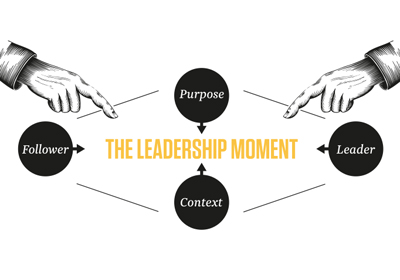Here’s a recent article published on simply-communicate.com which we came across recently and is worth posting:
A new report by University of Westminster in collaboration with a leadership events company and the Institute of Internal Communication, shows the critical role of leadership communication in repairing broken trust of UK employees.
Trust in UK business has suffered a serious decline since the 2008 global financial crisis, reaching its lowest recorded levels last year. With just one in four members of the public trusting business leaders to do the right thing, one in five to tell the truth and 54 per cent believing that business greed is the main driver behind innovation, it’s fair to say UK business is in the middle of an antitrust epidemic.
The report, which draws on recent academic and mainstream research in the areas of leadership, trust and communication, highlights the radically evolved role of leadership in the 21st century, the fact that many leadership communication approaches are completely unfit for purpose and the integral role for communication practitioners in creating a trusting company.
Katalin Illes, Principal Lecturer in Leadership and Development at Westminster Business School and co-author of the report said:
“Continuously declining levels of trust in society indicate that we are not relating to each other in the right way. Humans are social creatures and past and present findings confirm that strong, supportive communities have higher survival rates and prosper more. This is also true of business communities. Leaders have a key role to play in changing their own perceptions and helping the change process of others. The trouble is that most leaders are unable to recognise, let alone change, the structural habits of attention they and their organisations use to drive key factors such as trust. This presents a significant opportunity for communication practitioners.”
The first report of its kind, the work distils the latest thinking on trust and the central role of effective leadership communication in creating and repairing trust, starting with foundations such as listening and the role of face to face communication and moving through to more complex ideas that have already started a paradigm shift in UK business culture. It then provides practical guidelines for business leaders, and those who support them, to develop new, trusting work environments to drive higher performance and a more ethical workplace.
Key content covered in the report includes:
- Listening with an open heart, mind and will – achieving deeper organisational ‘listening’ through communicative and relational leadership styles
- 21st century leadership myths – ceasing to think of leadership as a position and starting to think of it as a collective process to create transparent work environments based on trust and shared purpose
- ‘Rich’ communication in a digital landscape – the heightened importance of leaders being physically present and face to face communication
- The Leadership Moment – effective leadership communication based on inclusivity, emotional intelligence and understanding what moves the audience to listen and act
- Leading from the future as it emerges – development of leadership capabilities in order to be aware of, anticipate and be ready to adapt for change, create a trusting future that would otherwise not be possible
- Repairing trust – common causes of trust destruction in organisations, how employees evaluate trustworthiness and how leaders can communicate to rebuild trust
- Transitive trust and the critical role of line managers – the science behind transitive trust and how middle layers of management are integral to building trusting organisations
- Creating a trusting company – the importance of value congruence and how employees trust their companies based on its perceived distributive, procedural and interactional fairness.
Steve Doswell, Chief Executive of the Institute of Internal Communication, who also collaborated on the report said: “Trust is essential. Without it social groups cannot function properly. It’s true on any scale, from individual families to the international community and it’s certainly true of businesses and all employer organisations. The value of this report for communication practitioners is that it explains with academic rigour the unbreakable connection between leadership, communication and trust, it provides powerful arguments to make the case for trust-building communication styles, methods and behaviours and it provides a suite of practical insights to start supporting your company’s leadership on building trust in your organisation today.”
